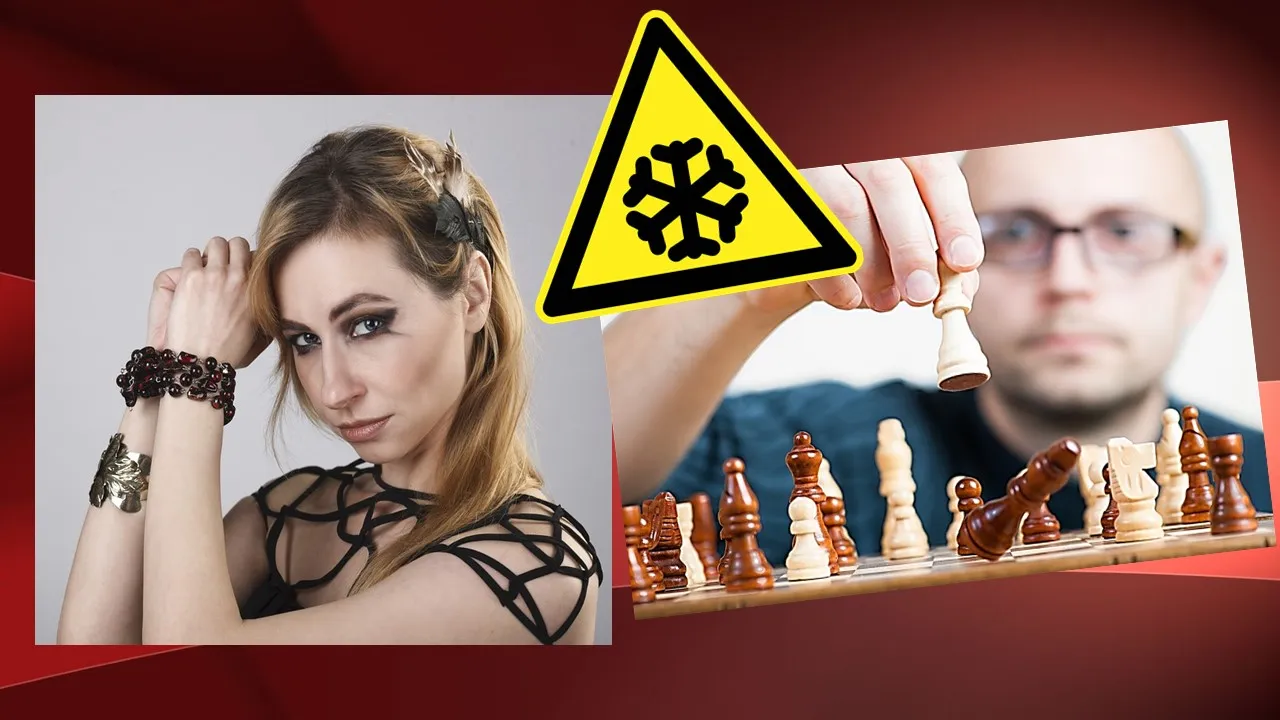
El uso superficial de la palabra "virtualidad" condena al usuario al riesgo de padecer miopía conceptual, embobecimiento. Es no advertir que este significante (virtualidad) es una puerta abierta a la profundidad en materia de inteligencia... De este tema trata el siguiente post.
The superficial use of the word "virtuality" condemns the user to the risk of suffering from conceptual myopia, dullness. It is not realizing that this signifier is an open door to depth in matters of intelligence ... The next post deals with this topic.
So many people have said here, there and there that "politics was invented by the devil" that today it is foolish to look for the basic author of such an expression. We usually use it by substituting the signifier "politics" for the signifier "power" since, although politics is essentially the exercise of power in any circumstance (not only in the struggle at the behest of the State), the use of the latter word (power) allows greater amplitude. Let us be clear that we understand power as the effective and temporary permission that a certain entity exercises over another or others, to execute what is inscribed in the spectrum of its interests. These power interests can carry with them - through historical development or simply, through circumstances - elements that range from evil to good. It is that, if we use dialectical thinking, it will not be difficult to realize that power can both be used under non-sanctified intentions as well as under positive intentions.
In any case, the words do not walk in the psyche (which is its habitat) in a royal way, but rather as part of eidetic systems that are not royal either. Words (and signs in general - gestures, smells, arrangement of walls and clothing, etc.) and ideas that sit in their armchairs (*), move in the psyche, tracing differentially, arrangements . Orders in whose fabric, power rules.
The word "virtuality", as is to be expected, was created long before (long before) computers appeared in offices and homes. Such a signifier is, then, long before the appearance of computing. Even so, these days it is usually used limited to the use of monitors, keyboards, Internet, Google, in short ...
Let's look at this case of the physical / virtuality categorical pair ... It is that we are not out of focus or militate in "an optical illusion" when, following Einstein, we imagine that the specific spatial terms of the platform x (meters wide, meters long from the corresponding train station) are transformed to a significant degree at the rate that the speed takes immense! that develops the train that passes by the front of that platform. And in this we are not out of focus nor do we militate in "an optical illusion", but rather we are facing a verisimilitude (as long as the aforementioned speed is, to put it simply, immense!). We can boldly call this verisimilitude virtual truth (whether or not it has to do with the technological world of computing, computing, in short). What is clear is that we cannot call this matter "virtual reality". The realities are not virtual, they are concrete. The realities are not in themselves chewing gum, but concrete things; and, as the teacher from Trier (19th century) said, the concrete is the concrete since it is the synthesis of concrete global determinations.
But returning to the topic that brings us to this article ... Virtuality is the condition that thought and symbolization take in the exercise of relating to reality, of playing probability games in terms of its concretions, intentionally and artificially modifying them (without ruling out unexpected situations). The virtual is, after all, a modification of reality at the point of playing probabilistic games in terms of its concretions.
Although in the practice of computing, there is virtuality (and a lot!), We cannot limit the richness of this signifier to the use of that technology. It is good to avoid that power simplifies us in such a way that an epistemological category as rich as "virtuality" is minimized in such a way as to shear our ability to create, to play with probabilities and above all, to - with conscience. - make what was once virtual a reality.
We reiterate ... There are no "virtual realities". Yes, it is possible to speak of virtual truths, of verisimilitudes, but not of that nonsense of "virtual realities". In the advertising we see on the Internet, it is nonsense about "virtual courses", "virtual concerts" and other things like that. If those courses and concerts exist and are online, digital or electronic, then what is involved is online, digital or electronic courses and concerts!
Through the conscious use of the category virtuality we can even play with the power and the plethora of contradictory elements that dynamically inhabit in the context of that category. The euphemistically called "situational rooms" are not different things ...

When the twentieth century gave clear signs of exhaustion and completion (and the idea of having computers in homes and offices was a chimera), Spanish-American popular culture already gave us chairs in the gnoseological category of virtuality ...
- The Mexican composer and singer José María Napoleón (b. 1948) put into the air, regarding his beautiful song "What a day was, will not be", the following message ... "Let me turn on the light, I don't want anything ; If this had been yesterday, I would take it. The first time you offer for me to stay here, but without loving you anymore, what would I gain! What once was, will not be ... ".
- The Mexican composer and pianist Consuelo Velázquez (1916-2005) also put on the air, regarding her beautiful song "What could have been and was not", the following message ... "I don't want to regret it after what I could having been and was not; I want to enjoy this life having you close to me until I die. "
(*) Tomando la aguda expresión de Valentín Voloshinov (semiólogo ruso; n. 1895). / Taking the sharp expression of Valentin Voloshinov (Russian semiologist (b. 1895).

FUENTE DE IMÁGENES: / IMAGE SOURCE:
https://pixabay.com/es/photos/la-astucia-el-p%c3%a9rfido-mirada-mujer-4865282/
https://pixabay.com/es/vectors/fr%c3%ado-congelaci%c3%b3n-helado-tersura-98833/
https://pixabay.com/es/photos/la-estrategia-de-ganar-victoria-1080534/
https://www.google.com/search?q=jose+maria+napoleon&source=lnms&tbm=isch&sa=X&ved=2ahUKEwi-ht_O9fHxAhW7ZzABHRRGCv4Q_AUoAnoECAEQBA&biw=1280&bih=912#imgrc=VfYNBQt6OPlqcM
https://www.google.com/search?q=consuelo+velazquez&tbm=isch&source=iu&ictx=1&fir=yPAi5ijF56YkdM%252Cpi2RzOr7lfxJ5M%252C%252Fm%252F03jmgt&vet=1&usg=AI4_-kQsWP31v3tyxsGwegN88ZP7Nh1O1A&sa=X&ved=2ahUKEwi106nS9vHxAhWgTDABHWilBXkQ_B16BAhCEAI&biw=1280&bih=912#imgrc=yPAi5ijF56YkdM
